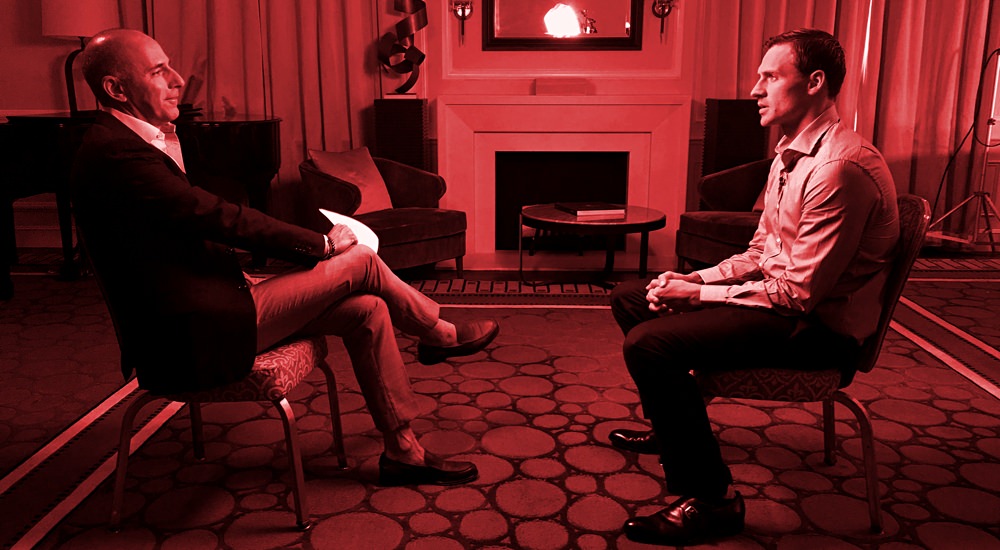Apologize Like a Man
Damage control for when you've done (or said) something you regret.

Ryan Lochte could've saved himself a lot of grief (and likely money) had he owned up to his mistakes in Rio.
Whether you're an Olympic athlete, a presidential candidate or just a regular guy like the rest of us, you're bound to make a mistake. To screw something up or someone over. To say something stupid before thinking about the consequences. You're bound to do this because you're human and it happens to us all. What separates the men—the grown men, the gentlemen—from the boys, is that a man steps up and takes responsibility for his actions. He owns his mistakes, acknowledges that regrettable slip of the tongue and does what he can to make things right.
What he doesn't do is blame such failures on everyone or everything but himself. You know the type—he got dumped because she was crazy paranoid. He didn't get the promotion because his boss had it out for him. Or he doesn't know why his friend is mad, because he didn't do anything wrong. Atalanta Beaumont, a psychoanalyst and author, says shirking your responsibility and pleading ignorance only leads to more problems. "It is not okay as a functioning adult to claim that you had no idea what was going on," she writes in Psychology Today. "This leaves you vulnerable to the loss of jobs or friends and to situations where things 'appear' to go wrong for you."

Want to dig deeper into why we justify foolish beliefs, bad decisions and hurtful acts? Read Carol Tavris's book Mistakes Were Made (But Not by Me).
$10 at Amazon
The reason why we see these things as unfair, instead of simply taking responsibility right away has a lot to do with our ego. You see, we've all developed a self-image, an idea of the person we want to be and try to live up to. When we do something wrong or when we fail or are accused of something, it chips away at that beloved self-image. This results in something called cognitive dissonance. Without getting too technical, this is essentially a form of mental distress when you try to hold two conflicting ideas at once. (Quick example: smoking while you know smoking is detrimental to your health.) And that inner conflict often leads to trying to justify a behavior or outright denying any wrongdoing.
"As fallible human beings, all of us share the impulse to justify ourselves and avoid taking responsibility for actions that turn out to be harmful," says social psychologist Carol Tavris in her book Mistakes Were Made. "The higher the stakes—emotional, financial, moral—the greater the difficulty." So it may be somewhat natural to want to deflect blame, but that doesn't mean you should give in to your ego. A grown man stands up, takes ownership of his mistakes and knows that doing so doesn't convey weakness. In fact, it does just the opposite. It also helps you be a become a better man.
When you acknowledge your missteps (instead of denying them) you can learn from them and make better decisions in the future. When you own up to your wrongdoing, you can keep small problems from growing into full-on fiascos. And you'll never strengthen a relationship by standing firmly in the fact that you were justified in your poor decisions. Making a mistake doesn't make you stupid. It doesn't make you weak or a bad person. You just messed up. There's no shame in admitting it. A little humility goes a long way in taking responsibility for your actions, which is really taking responsibility for your life.

Want to dig deeper into why we justify foolish beliefs, bad decisions and hurtful acts? Read Carol Tavris's book Mistakes Were Made (But Not by Me).
$10 at Amazon